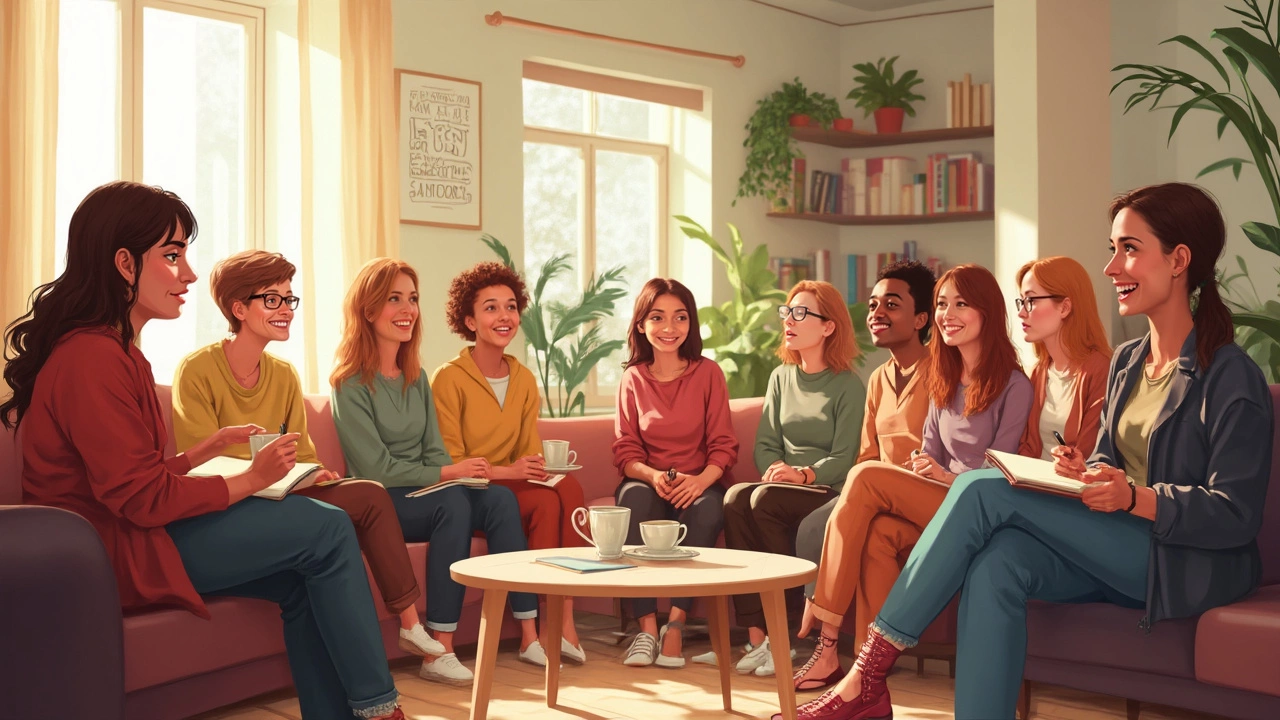If you think sex education stopped sometime around your awkward teenage years, you’re missing out. People who never stop learning about sex have the kind of confidence and intimacy most dream about. There's no magic age when you just “know everything” about sex or what people want in bed. Science keeps proving that sex, like any skill, gets better the more you learn and practice. Not only does continued education open up more satisfying relationships, but it might even keep you healthier, both physically and mentally. So why draw the line at your twenties—or rely on the half-truths you picked up in gym class?
The Problem With Standard Sex Education
Let’s be honest, the sex ed most people get as teens is basic, if you’re lucky, or downright unhelpful if you’re not. Most schools barely graze over consent, pleasure, sexual orientation, or emotional factors. And once people hit adulthood, the idea seems to be: you’re on your own. This leaves a lot of adults carrying awkward misinformation well into the years they’re supposed to feel their most confident.
Think back: Do you remember those outdated diagrams and embarrassing conversations? They rarely covered real-life sex, the importance of communication, or what healthy sex even looks like. For example, the common myth that men always want sex or that women are less sexual persists because nobody really talked about anyone’s real desires or needs.
Diving into more nuanced topics—like how to communicate kinks, how aging or stress might change libido, and understanding dynamics like respect and boundaries—just didn’t happen. Most adults figure out the gaps only when a problem pops up in their relationships. Wouldn’t it be better not to wait?
The Science: Sex and Lifelong Learning
Your brain doesn’t stop changing just because you hit a certain age. It responds to new info all the time, which means your approach to sex can actually grow richer the more you learn. Researchers at Indiana University found that adults in their forties and fifties who sought out info about sexuality and partners reported higher satisfaction and more confidence. It’s not about “fixing” sex—it’s about expanding what it can mean for you and your relationships.
Guess what else? Couples who talk about preferences and experiment with new ideas tend to have less anxiety and longer-lasting intimacy. Learning isn’t just about reading articles—it can be watching videos, reading books, talking to open-minded friends, or even consulting professionals like sex educators or trusted sex workers. It’s modern, it’s brave, and it’s backed by clear benefits. One study from the Journal of Sex Research found that people who regularly seek sexual education report fewer insecurities and make healthier choices regarding contraception and consent.

Debunking Myths: Sex Isn’t Just for the Young
This idea that sex is best when you’re young is a total myth. Sexual wellness is part of your health, no matter the decade you were born. As we age, our bodies—and our lives—change. Maybe you’re navigating parenthood, stress, menopause, or just boredom. These shifts can all affect how you feel about sex, and what you need or want from it. But aging doesn’t mean desire dries up—in fact, exploring your sexuality can become easier when you’re no longer worried about teenage embarrassment.
Many older adults report richer, more sensual sex lives than they did in youth, but it often takes communication and open-mindedness to get there. The more you learn about anatomy, sexual health, and emotional fulfillment, the less you rely on luck and the more you steer your own pleasure. Want to try something new? There’s no expiration date on that curiosity. People who keep learning about things like sex toys, sexual orientation, or even new styles of communication feel more liberated and resilient. A huge survey published in 2023 even found that those over 50 who keep exploring sexuality report greater happiness in other parts of life, too.
Practical Tips to Keep Learning—and Why It Matters Now
If you’re ready to shake things up, you don’t need to sign up for a full course (unless you want to!). Here are some real steps anyone can take to keep the learning alive and make sex more enjoyable:
- Talk openly with your partner. It’s not just about what you do—it’s about how you talk about it. Say what you want. Ask what they like. The more honest, the better.
- Explore beyond the basics. Try reading books by modern sex educators, or check out podcasts that discuss sexual wellness and pleasure. Knowledge is everywhere now, and you don’t have to be shy about finding it.
- Consult sex-positive professionals. A lot of people find value in talking to trained coaches or therapists. Even conversations with experienced London escorts or sex workers (who, by the way, can offer plenty of wisdom about real pleasure and communication) have helped many people break down taboos and feel more comfortable in their skin.
- Experiment safely. Whether it’s toys, role-play, or even booking a coaching session, try new things within your comfort zone. Being safe and respecting boundaries (your own and your partner’s) makes trying stuff out way less scary.
- Keep the conversation going. Your needs might change next year, or next month. Checking in with yourself and your partner makes continued pleasure easier to maintain.
And give yourself a break: nobody knows it all. Curiosity is sexy. Making a mistake is part of learning, and every time you ask a question, you make things less awkward for the next generation too.

Sexual Confidence, Health, and Breaking Taboos
Everyone deserves a sex life that’s free from shame, guilt, or fear—no matter your background or status. And, when you keep learning, you actually chip away at the stigma that’s so tightly wrapped around adult sexuality. The more we talk, the less isolation people feel. Keeping quiet only helps myths and misinformation grow. But when you keep asking, reading, and yes, even laughing about sex, you get a lot more than better orgasms (though, let’s be honest: nobody complains about those).
Check this out: in a recent survey from a major British health institute, 41% of adults who discussed sexual concerns with a professional reported feeling more energetic and upbeat in day-to-day life. Sexual health is linked to heart health, sleep quality, and yes, even job productivity. The science is solid—those who communicate and learn are more satisfied and feel less isolated. This is about owning your pleasure and improving your entire life.
By now, plenty of people see that being proactive about sexuality—whether you’re seeking resources, chatting to professionals, or just learning about what makes you tick—pays off in all the best ways. Sex is just one part of life, but for most people, it’s a pretty important one. Getting better at anything starts with wanting to know more. Don’t settle for what you thought you knew at 18. Stay curious, keep learning, and watch every part of your life get a little bit brighter.
